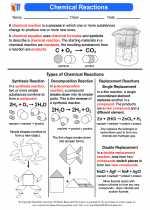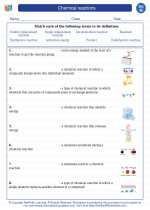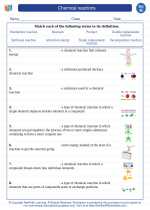Weather
Weather refers to the atmospheric conditions at a specific place and time. It includes factors such as temperature, humidity, precipitation, wind speed, and atmospheric pressure. Understanding weather is important for predicting and preparing for natural events such as storms, droughts, and heatwaves.
Key Concepts
- Temperature: The measure of how hot or cold the air is. It is often measured in degrees Celsius (°C) or Fahrenheit (°F).
- Humidity: The amount of water vapor present in the air. It influences how hot or cold the air feels.
- Precipitation: Any form of water, such as rain, snow, sleet, or hail, that falls from the atmosphere to the Earth's surface.
- Wind Speed: The speed at which air is moving horizontally past a given point.
- Atmospheric Pressure: The force exerted by the weight of the air above a given point.
Factors Affecting Weather
Several factors influence the weather, including:
- Sunlight: The amount of sunlight reaching the Earth's surface affects temperatures and drives weather patterns.
- Wind Patterns: Global wind patterns help distribute heat and moisture around the Earth.
- Ocean Currents: The movement of ocean water influences temperature and precipitation patterns in coastal areas.
- Topography: The physical features of the land, such as mountains and valleys, can affect local weather conditions.
- Greenhouse Gases: Gases like carbon dioxide and water vapor trap heat in the Earth's atmosphere, affecting global temperatures and weather patterns.
Weather Instruments
Scientists use various instruments to measure and study weather phenomena:
- Thermometer: Measures air temperature.
- Barometer: Measures atmospheric pressure.
- Hygrometer: Measures humidity levels.
- Anemometer: Measures wind speed and direction.
- Rain Gauge: Measures the amount of precipitation that has fallen over a specific time period.
Weather Patterns
Understanding weather patterns is essential for predicting future weather conditions. For example, the movement of high and low-pressure systems, the formation of clouds, and the behavior of jet streams all contribute to the development of weather patterns.
Human Impact on Weather
Human activities, such as burning fossil fuels and deforestation, can contribute to changes in weather patterns, leading to phenomena like global warming and climate change. It is important to study and understand these impacts to mitigate potential negative consequences.
Study Guide
Here are some key points to focus on when studying weather:
- Understand the factors that influence weather, including temperature, humidity, precipitation, wind speed, and atmospheric pressure.
- Learn how weather instruments are used to measure and study atmospheric conditions.
- Explore the impact of human activities on weather patterns and the environment.
- Practice interpreting weather maps and predicting future weather conditions based on observed patterns.
- Consider the role of technological advancements in weather forecasting and monitoring.
[Weather] Related Worksheets and Study Guides:
.◂Science Worksheets and Study Guides Eighth Grade. Chemical reactions

 Activity Lesson
Activity Lesson
 Worksheet/Answer key
Worksheet/Answer key
 Worksheet/Answer key
Worksheet/Answer key
 Worksheet/Answer key
Worksheet/Answer key
 Worksheet/Answer key
Worksheet/Answer key
 Vocabulary/Answer key
Vocabulary/Answer key
 Vocabulary/Answer key
Vocabulary/Answer key
